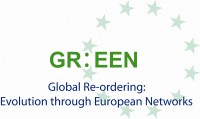Open Systems of International Organization

Most analysts of International Organizations (IOs) depart from a view of bounded entities, with a strict separation of inside and outside, hierarchically organized, and based on ruleconformity and enforcement. While there is great variation in explanatory emphasis between those that advance principal-agent analyses and those that look at organizational culture, they share a view of IOs as actors with distinct attributes. While these theories have advanced our understanding of the role and functioning of IOs in world politics, they have also produced some significant blind spots. These blind spots include an inability to explain the proliferation of issue-areas that different IOs claim authority over, the degree of cooperation and competition between IOs, and the logic by which changes occur simultaneously across different IOs. We advance an ‘open systems’ view of IOs as institutional ecologies, where they are seen as an emergent phenomena - produced by variable configurations of the factors that make IOs what they are. We focus on the culture - a term to be specified - of the professionals that work in and populate IOs, arguing that the shifting evaluative criteria and value systems that they inculcate matters more to the changing landscape of IOs than other factors. This means that rather than making strong claims about the attributes of IOs and then use IO behavior as explanans for political outcomes, we make IOs the explanandum and shift explanatory focus to what produces the differences and similarities in IOs’ attributes over time. We demonstrate the added value of this analytical perspective by discussing some significant changes that extant theory cannot fully explain, including the proliferation of issue-areas populated by more than one IO, the transformation from rule-enforcement to client-orientation in international organization, and the increased use of private-public partnerships in IO operations.


